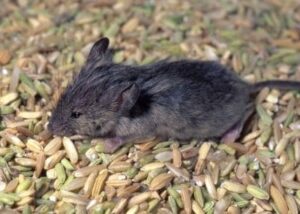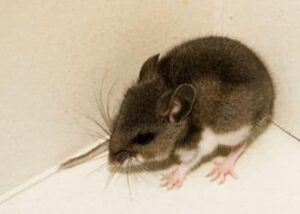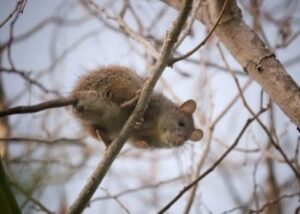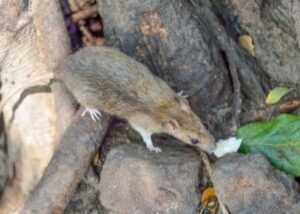FAST, EFFECTIVE EXTERMINATION OF MICE AND RATS
When you have rodent trouble, a solution can’t wait.to solve them.
PEST CONTROL LIBRARY
Rodents
There are more than 2,000 rodent species in the world, with these highly adaptable creatures living on every continent except Antarctica and in every habitat except in water. They have an ability to breed with ease and can modify their diets to fit their living conditions.
Plenty of them thrive in Florida’s climate, and the two rodent species that cause the most problems in homes in our state are rats and mice. More specifically, each of these species have two subspecies that can be especially prevalent here and, therefore, more problematic. They are the house mouse, the deer mouse, the roof rat, and the Norway rat.
Knowing which kind of rodent has invaded your home can help you to understand their feeding, nesting, and other behavioral patterns. No matter what kind they are, though, rat and mouse extermination is recommended because of the diseases they can carry and spread; the damage they can do to the home; and the ways in which they can contaminate your family’s food and threaten everyone’s health.
As the name of the house mouse (Mus musculus) implies, these rodents like to nest inside of structures. Identifying features include short hair, with possible colors including black, gray, and light brown. The tail and ears have hair but less than on the rest of the body, with bellies being a lighter shade than the color on the rest of their bodies. They can grow to about 3.5 inches in length when measuring them from the tip of the nose to the end of the tail, although not all of them get to this size. If you find pointy (both ends), rod-shaped feces in your home, this may indicate the presence of a house mouse (although deer mice feces are similar).
House mice prefer to live in structures because this protects them against bad weather and allows them to hide from snakes and other natural predators. Plus, this puts them close to food sources in kitchens and pantries. They can slip into homes through cracks as small as a dime.
House mice can, unfortunately, spread diseases such as salmonella and lymphocytic choriomeningitis, and contaminate food in ways that sicken people. That’s why mice/rodent control makes sense to protect your family.

The deer mouse (Peromyscus maniculatus) is brown in color with a white underbelly and feet, colors that mimic those of a deer. They can range between five and eight inches in length.
Deer mice tend to prefer rural living so you may not find them in your main residence (although they might settle in a basement or attic); it’s more likely that you’ll see them in sheds, garages, and other outbuildings or in second homes where people aren’t there as often. Or they might build a nest in a car that isn’t used frequently or in a pile of outdoor debris. If a deer mouse does build a nest indoors, it will almost certainly be in a sheltered area, such as inside a piece of upholstered furniture, in a wall void, or in boxes or drawers.
Deer mice typically eat at dawn and dusk with favorite foods including bugs, nuts, seeds, berries, and small fruits. One of the biggest dangers with having this kind of rodent in your home is that it carries and can transmit Hantavirus Pulmonary Syndrome, a respiratory disease that can be fatal. It can spread when someone breathes in urine droplets in the air from deer mice that are infected with the disease or through a dead deer mouse.
According to the Centers for Disease Control and Prevention (CDC), this disease is primarily spread through human contact with rodents and even people who are otherwise healthy can be at risk if exposed to this virus. Again, this is what makes mice/rodent control so important.

The roof rat (Rattus rattus) can range in color from tan to gray to black with a light underbelly and a long tail (longer than its body and head, combined). They’re slender and can weigh between half a pound and a pound. They live in the southern portions of the United States from coast to coast.
As their name implies, they are good climbers and, when given a choice, will build nests off the ground, including in spaces on the roof and in attics, as well as in palm trees and certain kinds of shrubbery. In attics, they can wreak havoc by chewing on the rafters and electrical wires; the latter can lead to house fires. Plus, if you have citrus trees, they will go after the fruit.
In fact, fruit and vegetables—along with grain—are their preferred foods. They’ll eat up an ounce apiece daily. That isn’t much when there is just one roof rat but, with an infestation, this can mean a lot of contaminated food in your home.
Once you get a small infestation of roof rats, you can expect them to multiply quickly. They become sexually mature in three to five months and then can have up to six litters in their one-year lifespan. Each litter will average six to eight babies. Root rats can carry a variety of serious diseases, including rat-bite fever, murine typhus, leptospirosis, and the plague, making rodent control services important to protect your family’s health.

The Norway rat (Rattus norvegicus)—also known as the brown rat or the sewer rat—may be similar in length to the roof rat but is pretty hefty in size. Fur is either gray or brown, a shaggy texture instead of a smooth one. Their tails are shorter than the head/body length and they—the tails—are scaly, just like the ears. Norway rats can get into your Florida home in a half-inch hole and are perfectly willing to gnaw away at a smaller one to gain entry or to burrow away, as needed, to get where they want to go.
Once the Norway rat gets inside, they’ll continue to gnaw through foundational and structural materials in your home, plus pipes, wiring, and more, while also contaminating food in the home. Plus, they also carry plenty of diseases, including the plague, salmonella, cowpox virus, jaundice, and more. The solution is the same: pest control for rodents.

